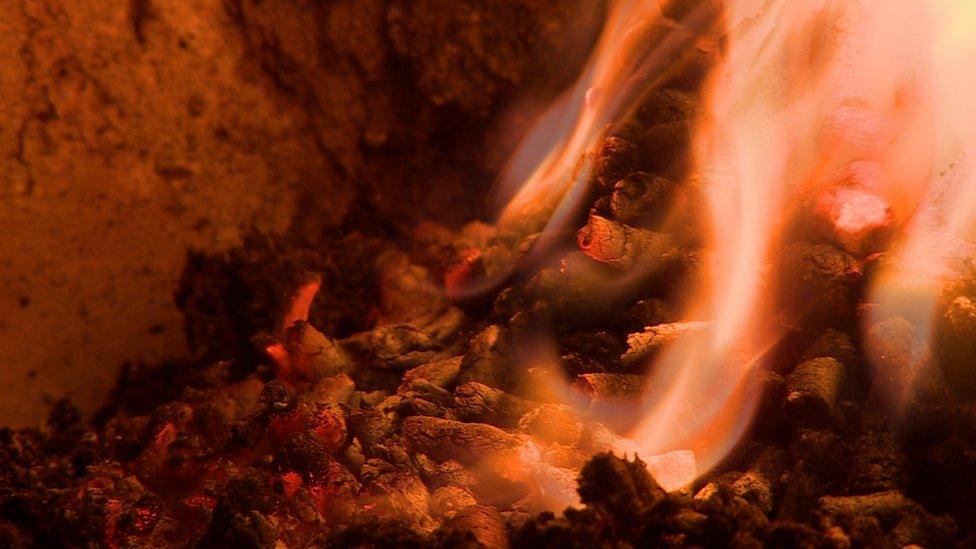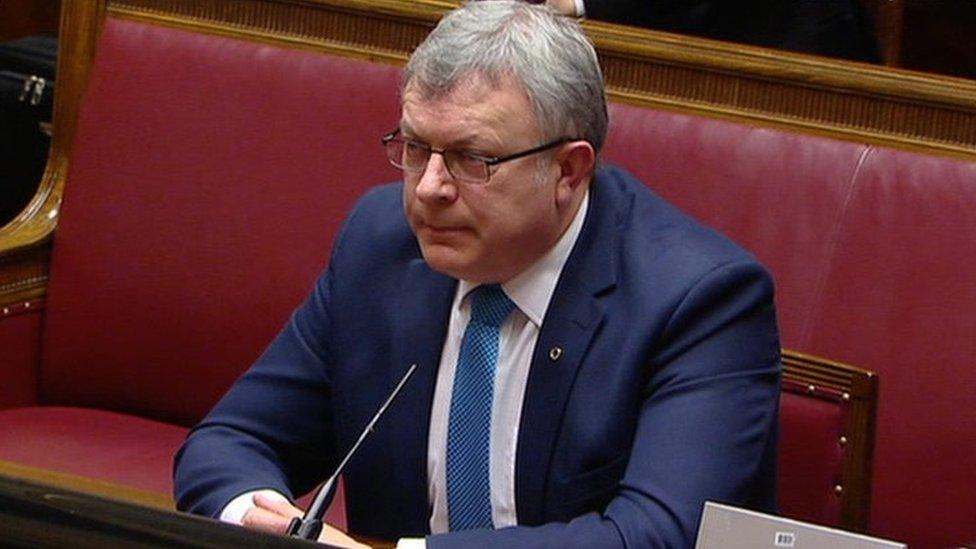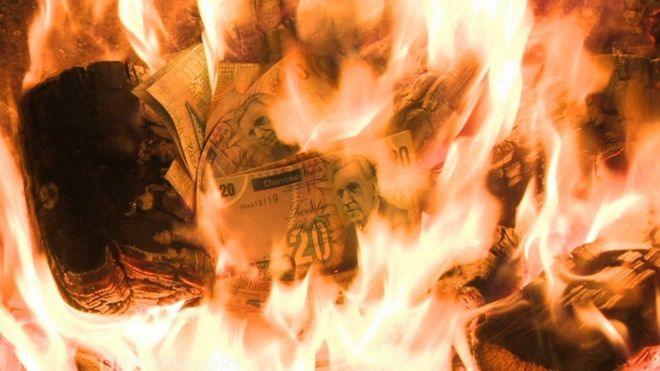'Cash-for-ash' details 'withheld' from MLAs
- Published

Crucial details about the scheme were not given to MLAs tasked with scrutinising it, the inquiry heard
Information was "withheld" from a Stormont scrutiny committee by departmental officials bringing in the botched Renewable Heat Incentive (RHI) scheme, a former chairman has said.
SDLP MLA Patsy McGlone said he had become "angry" as he watched evidence at the public inquiry into the scandal.
He said he now had "multiple concerns" about how the flawed green energy initiative was managed.
Mr McGlone chaired the Northern Ireland Assembly's Enterprise Committee.
In 2012 it was responsible for scrutiny of the regulations establishing the RHI scheme.
Giving evidence to the public inquiry on Wednesday, Mr McGlone said no problems were apparent at the outset.
But he now had "multiple concerns" on the basis of what the inquiry had heard so far about the running of the scheme.
"It paints a very poor picture," he said.
'Candour and professionalism'
The Mid Ulster representative said that as he had seen details unfold at the inquiry he had become "angry" that "information was withheld from the committee".
He said he and the other MLAs on the committee had been "utterly reliant" on the "candour, knowledge and professionalism" of officials presenting the regulations to them.

Patsy McGlone said MLAs relied on civil servants to provide details about the RHI scheme
They been told that cost controls in a similar scheme in Great Britain were not considered necessary in Northern Ireland, he added, and members would have asked questions about that.
He said it could have "triggered a series of events or correspondence with the department to ask why".
"In all our lives we're only as good as the information we're given."
He told the inquiry that several committee members, including Green party leader Steven Agnew, had taken a particular interest in the scheme and would have been likely to follow it up.
Later a senior official in the Department of Finance accepted that had officials there spotted a "big error" in the RHI business case they would have insisted it be withdrawn.
Stuart Stevenson had responsibility for approving the business case before the scheme could proceed.
He accepted his team had missed that its true cost was likely to be 50% more than the estimate by DETI officials.
He agreed with inquiry panel member Dame Una O'Brien that his department should have been "all over the numbers".
He said they'd asked DETI officials if they were sure of their numbers.
"They're seeking approval from you and you're basing your approval on assurances back from them," Dame Una said.
"Essentially, yes," Mr Stevenson replied.
Anonymous 'insider'
And he denied a claim by TUV MLA Jim Allister that he'd been pressurised to approve the 2012 scheme even though it wasn't value for money.
The claim was made in a 2016 letter from Mr Allister to Ulster Unionist MLA Robin Swann who was then chair of the Assembly's Public Accounts Committee which was running an inquiry into RHI.
Mr Allister claimed the information had been passed to him by an anonymous "insider" at the Department for the Economy.
He said the committee should try to establish whether Mr Stevenson had been contacted by a special advisor to urge him to pass the business case.
Mr Stevenson told the inquiry he had not been pressurised and had had no contact with any politicians or political representatives.
The inquiry, which is taking place at Stormont, was set up to investigate the circumstances surrounding the energy initiative after its costs spiralled.
The RHI scheme offered to subsidise the cost of its claimants' fuel - mostly wood pellets - for running new renewable heating systems.
But the fuel actually cost far less than the subsidy that claimants were receiving, effectively meaning that they could earn more money by burning more fuel.
The most recent estimate put the projected overspend at £700m over 20 years if permanent measures to control the cost are not implemented.
The scandal generated significant public concern and the fallout led to a major political crisis in Northern Ireland that exists to this day.
- Published10 January 2018
